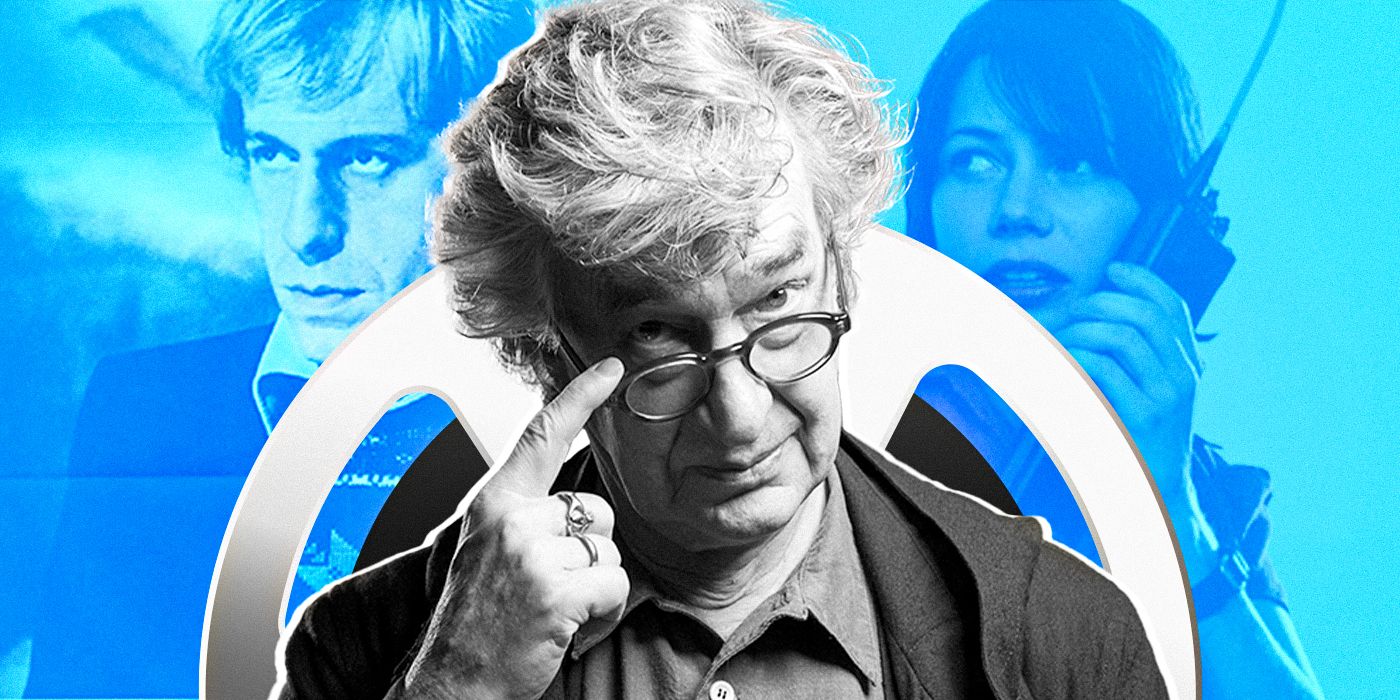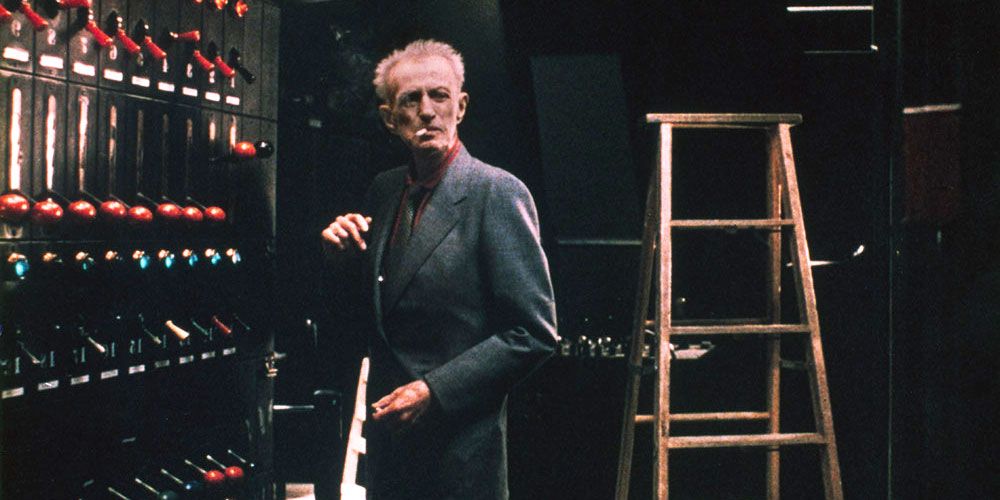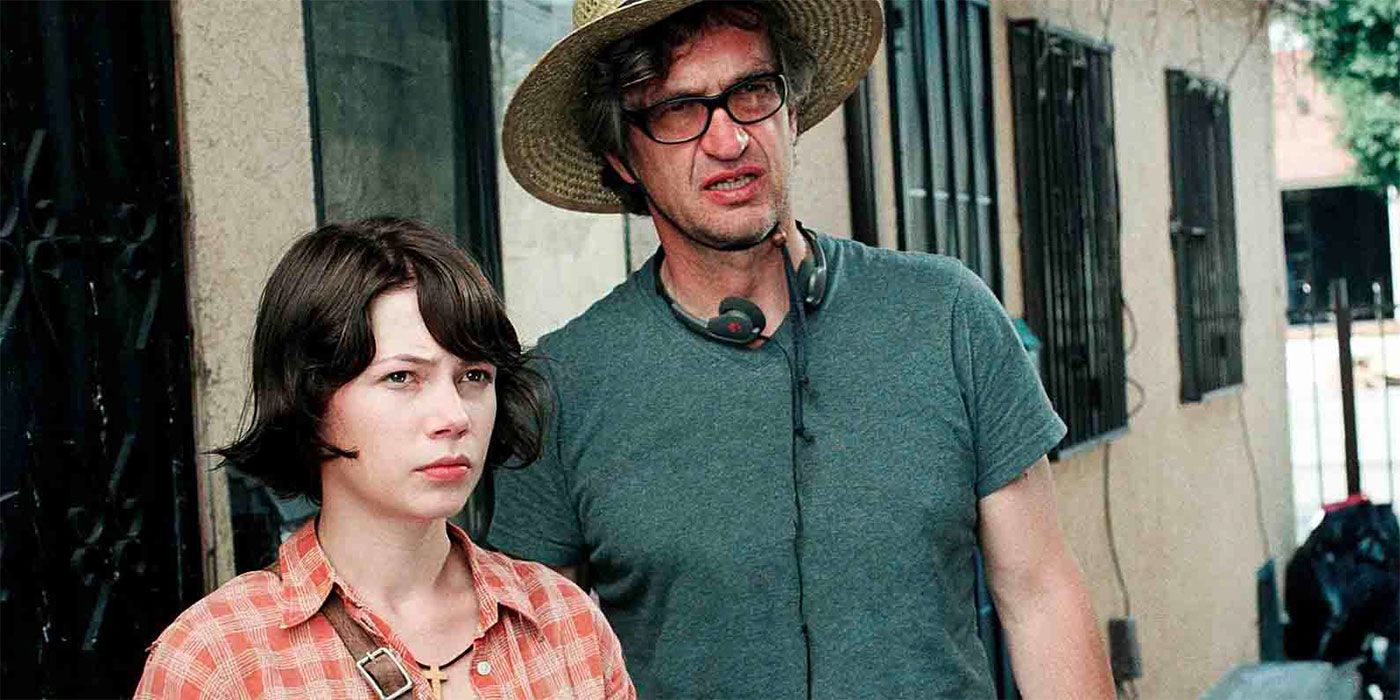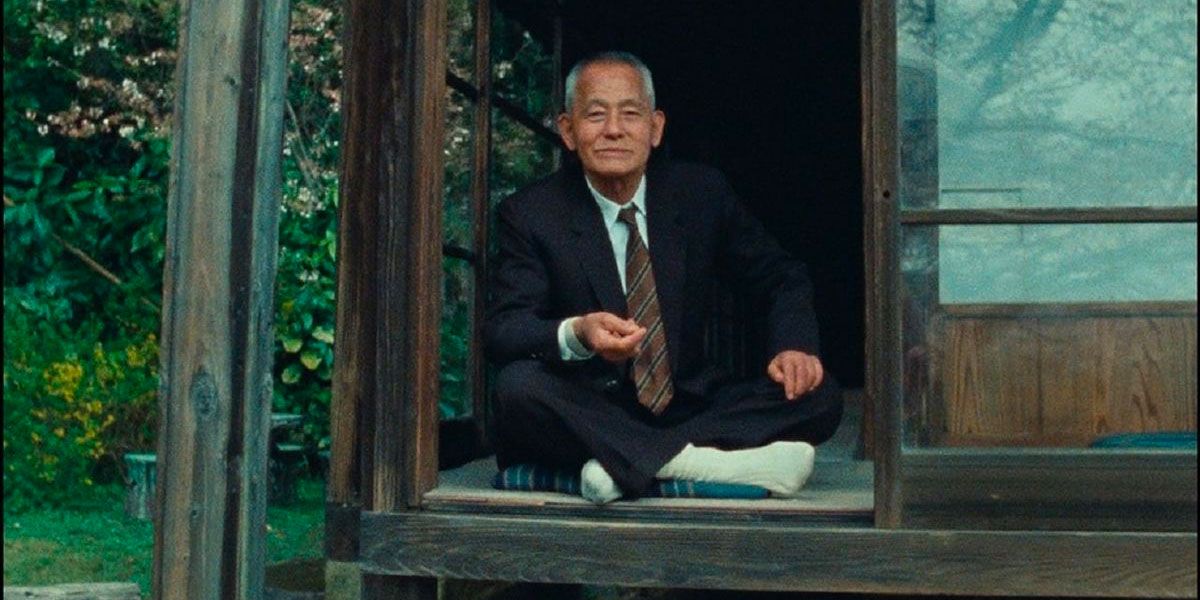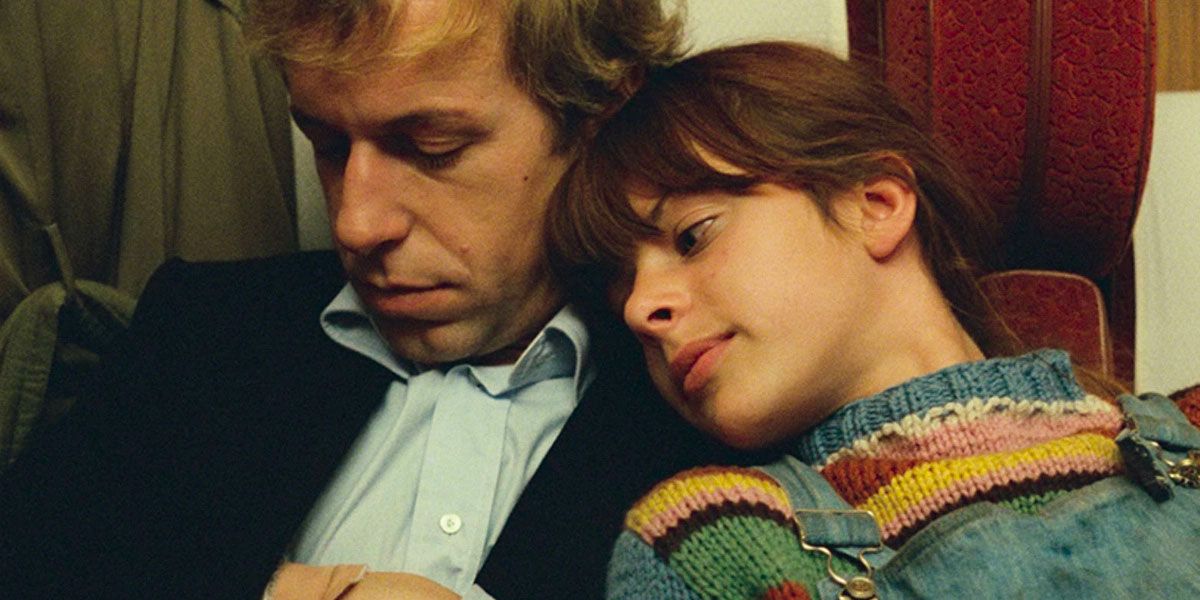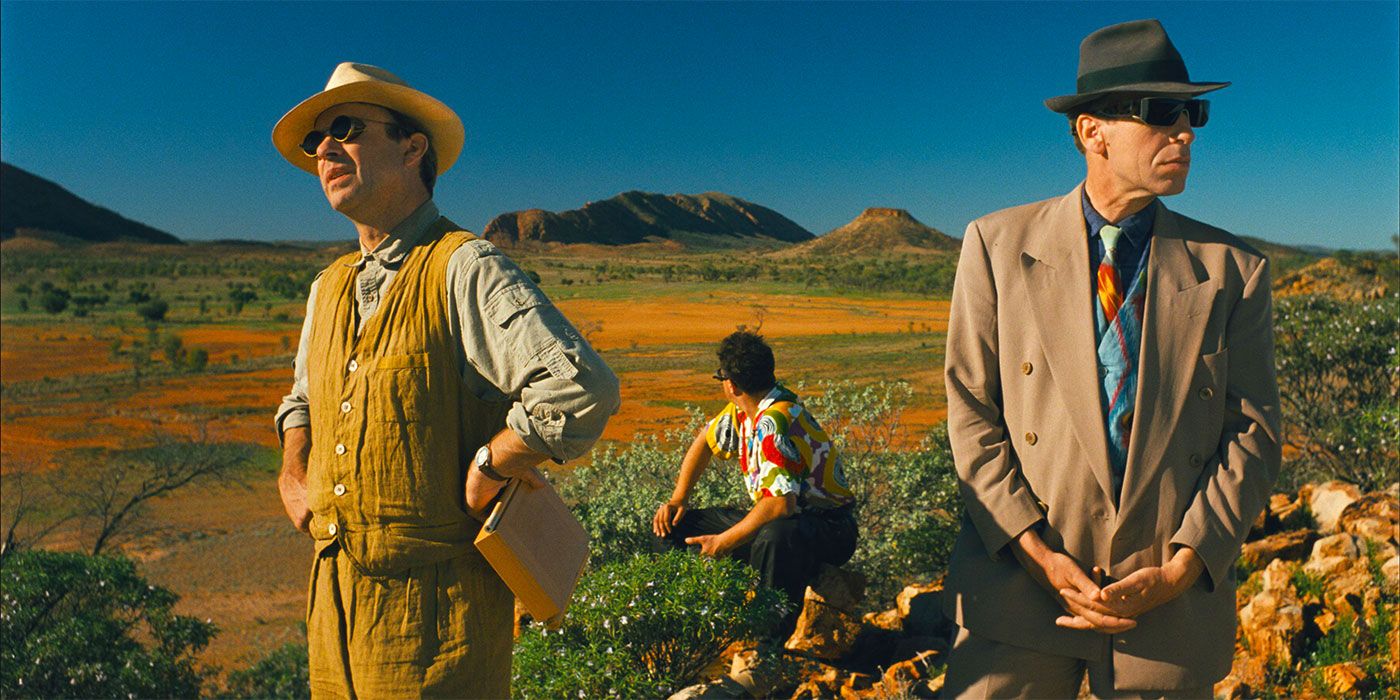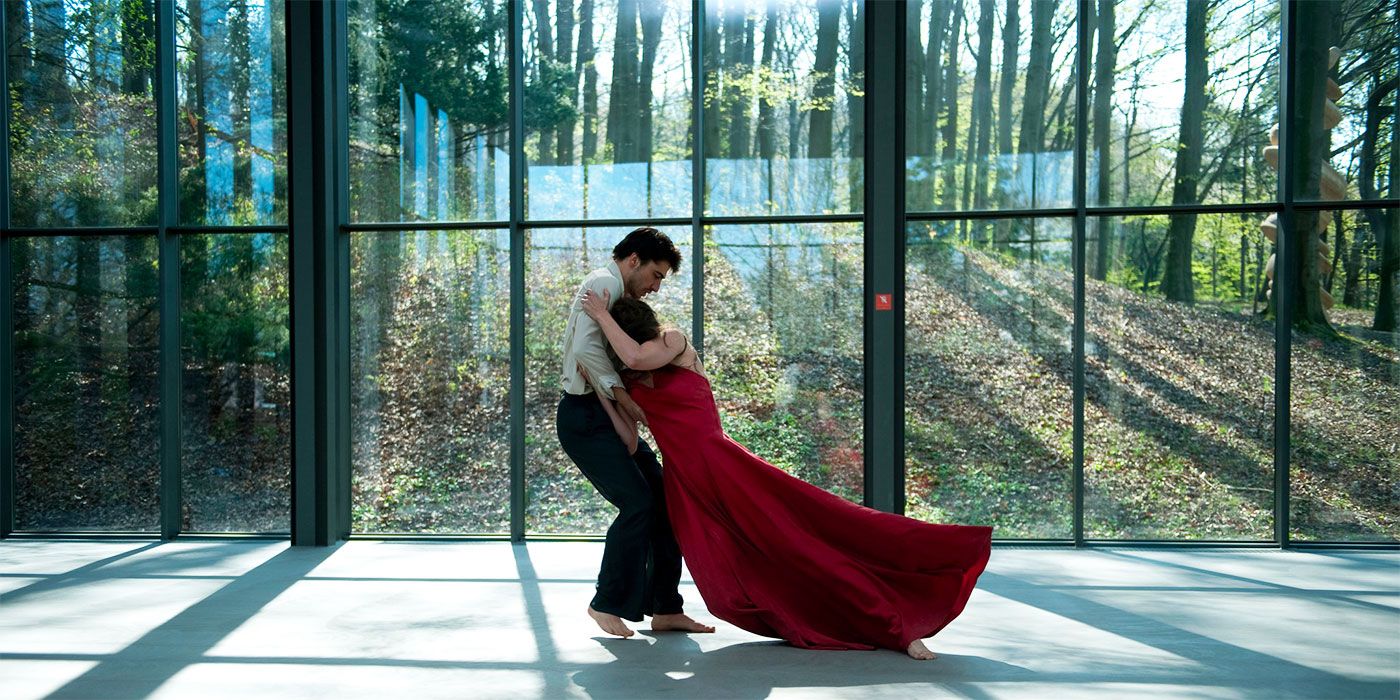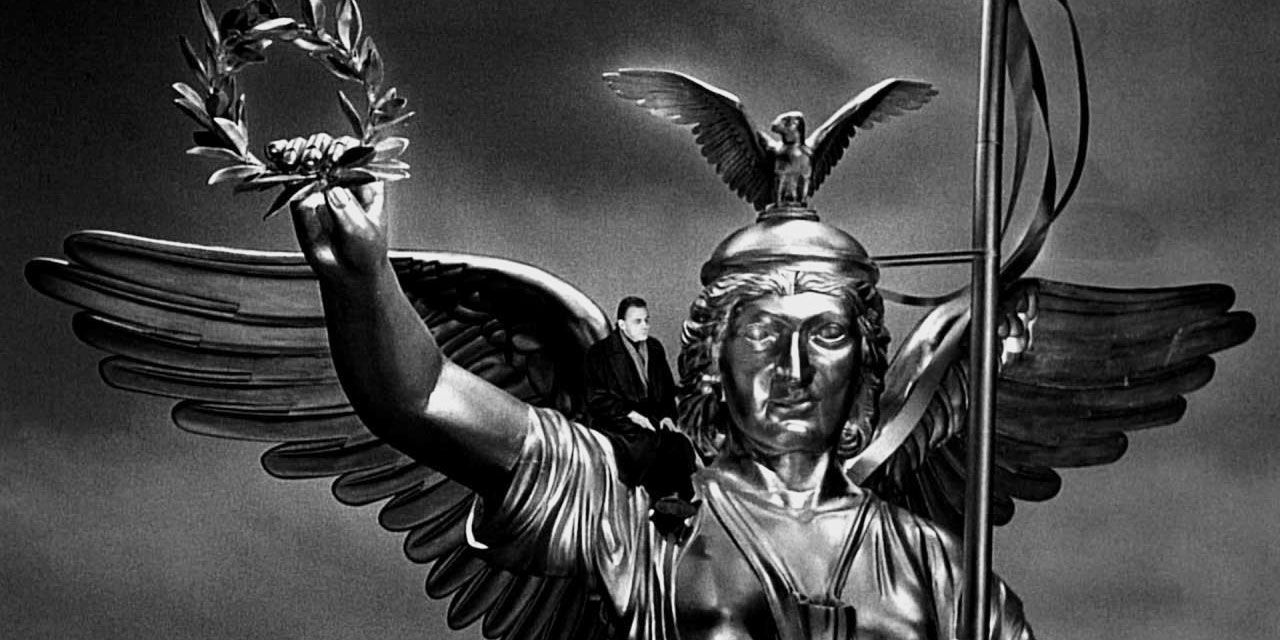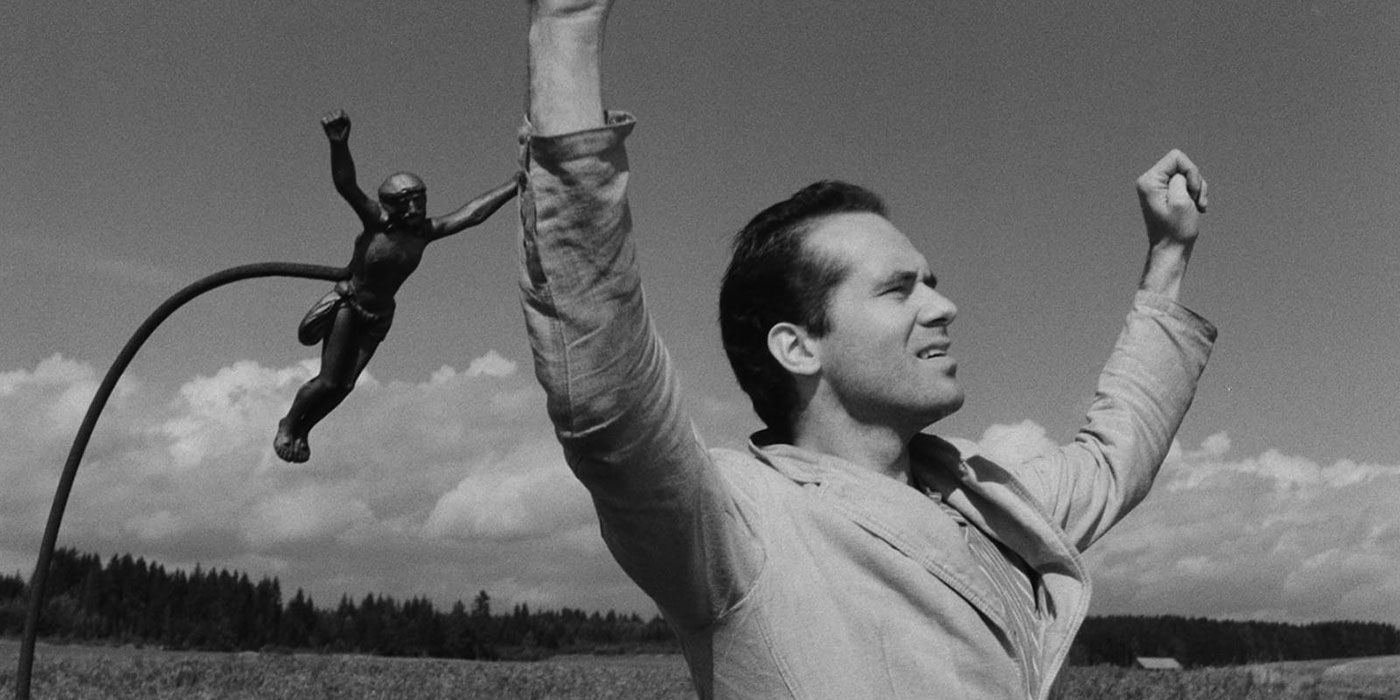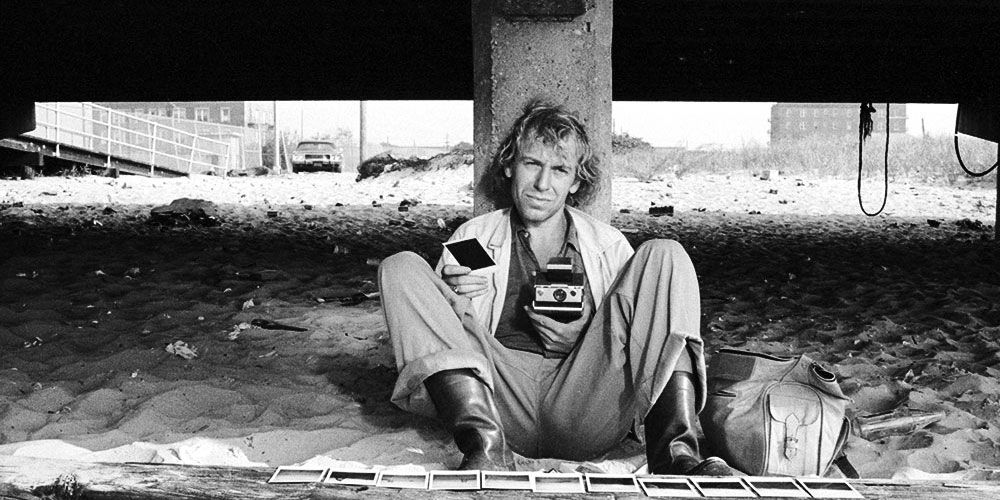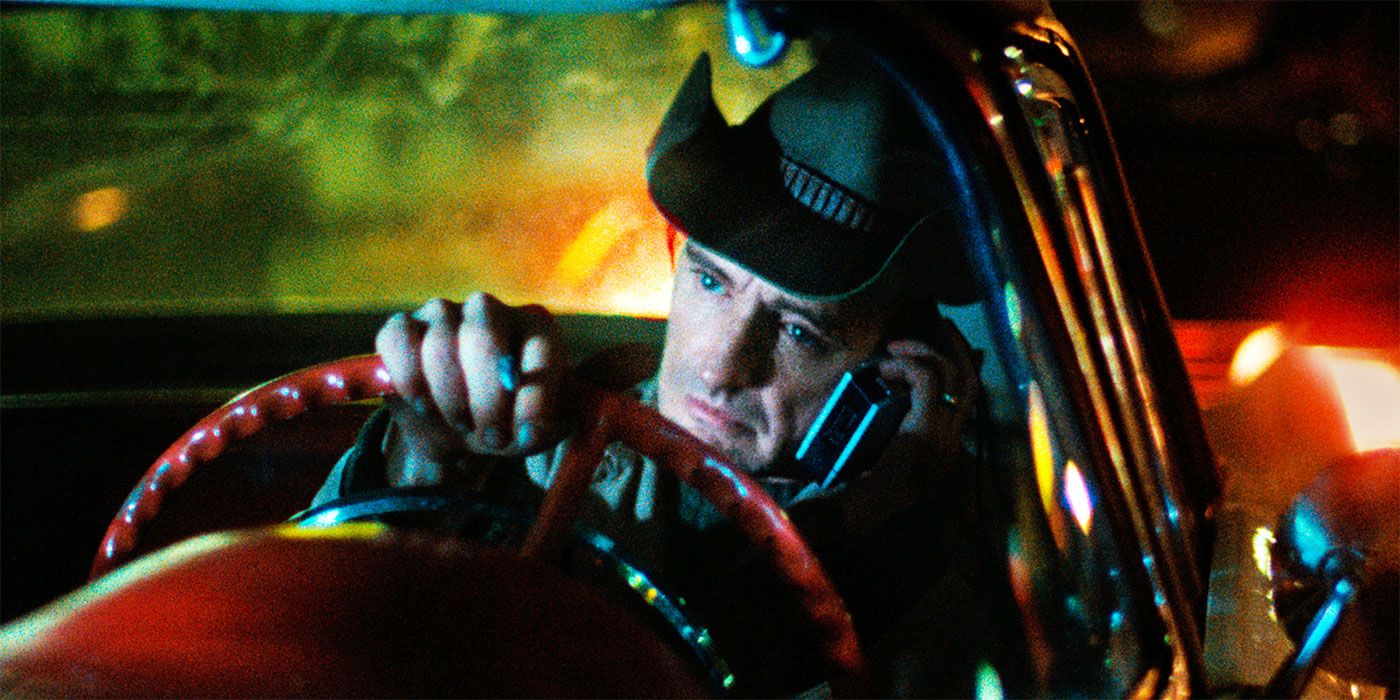Few directors are as gifted at embodying the tactile sensation of in-between-ness as German icon Wim Wenders. Even when Wenders isn’t making one of his beloved road odysseys, the characters in his pictures are constantly roaming, searching, forever looking for a place to call home, if only for a short while. A pioneer of the New German Cinema, Wenders is and was a bonafide visionary, and also the rare case of a filmmaker whose minor works remain fascinating.
Since Wenders’ filmography is far-reaching and brazenly eclectic, we thought we’d list our eleven favorite Wim Wenders pictures – either to get you newbies started, or for those who are thinking about revisiting Wings of Desire sometime down the line.
11. Lightning Over Water (1980)
Nicholas Ray was a cinematic outlaw: a rule-breaker and transgressive thinker who brought a defiantly unconventional touch to genres such as the American Western (Johnny Guitar), the noir (the gritty and underrated They Live By Night), and the youth-gone-wrong melodrama (Rebel Without A Cause, of course). Wenders was tremendously fond of Ray (the In A Lonely Place director makes a cameo in Wenders’ 1977 landmark, The American Friend), and Lightning Over Water, like Tokyo-Ga, sees Wenders paying noble tribute to one of his major influences. Fun fact: indie stalwart Jim Jarmusch worked as Ray’s assistant during filming, and has since credited both Ray and Wenders as stylistic forefathers to his own career.
10. Land of Plenty (2004)
Wim plays the lonely man’s post-9/11 blues in the jittery and despairing Land Of Plenty, a tone poem of regret and loss that stars the great Michelle Williams as a grown daughter of American missionaries who ends up tracking down her uncle (John Diehl), a paranoid military veteran who drives around in a self-styled surveillance van, consumed with spite for those he believes are responsible for the September 11th attacks. With its smeary, artfully abstract digital cinematography from Franz Lustig and a droning, down-tempo score that smacks of Radiohead in the mid-aughts, Land of Plenty, like any good Wim Wenders picture, evokes a singular form of cinematic melancholy.
9. Tokyo-Ga (1985)
Wim Wenders and prolific and legendary Japanese filmmaker Yasujiro Ozu have more than a bit in common as storytellers: both are humanists, and both search for sincere spiritual inquiry in the lives of everyday human beings. Tokyo-Ga is a cinephile’s delight: Wenders’ characteristically intimate and impressionistic ode to a fellow searcher. Wenders structures Tokyo-Ga as a diary of a trip he took to Japan sometime in the early 1980s, where he spoke with Ozu’s key collaborators and sought out beauty and truth in the annals of Ozu’s own filmography, as well as Tokyo itself. Tokyo-Ga is a beguiling love letter, from one cinematic master to another.
8. The Wrong Move (1975)
Few movies about the life of a writer are as unflinchingly honest in their anomie as Wenders’ The Wrong Move, the transfixing second chapter in the director's Road Movie Trilogy. More than most artists, Wenders understands that the journey is the destination, and The Wrong Move is 103 minutes spent in pursuit of affirming that notion. German film and stage actor Rüdiger Vogler stars as Wilhelm, a rootless young German man who drifts on a seemingly never-ending road trip throughout his homeland, staying where he can and biding time with the odd travelers he meets along the way.
7. Until The End Of The World (1991)
A grandiose, messy, unabashedly romantic reverie that washes over the viewer like a sun-kissed psychedelic daydream, Until The End Of The World is one of Wim’s biggest swings: a dystopian vision of the ultimate road journey where the director’s cut clocks in at just under five hours. Featuring some of the most magnificent and otherworldly visual contributions from regular Wenders cinematographer Robby Müller, Until The End Of The World depicts a world where a satellite is hurtling towards earth, set to obliterate human existence as we know it, compelling an enigmatic doctor and a car crash survivor to seek out meaning in the midst of an apocalypse that is both literal and spiritual.
6. Pina (2011)
Pina, the explosive dance documentary that Wenders directed about fearless and groundbreaking dance choreographer Pina Bausch, is a rush of pure cinematic sensation. It is a film whose hallucinatory visuals and barnstorming musical arrangements act as spectacles that the viewer simply surrenders to – as such, it is a work that resists pedantic academic analysis and instead exists as an example of pure kineticism, unencumbered by the need to make a “story” out of assorted parts. In Pina, the story is movement, and dance is the plot. More poignant still is that Bausch died before the film’s release, cementing Pina itself as a note-perfect eulogy for a one-of-a-kind genius.
5. Wings of Desire (1987)
If you were only ever able to see one Wim Wenders film in your lifetime – and we here at Collider truly hope that’s not the case for you, our reader – then Wings of Desire would be as solid a pick as any film on this list. This is the stark, unapologetically fantastical tale of two angels who dwell upon the towers and building tops over Berlin, and the one in particular who falls in love with a ravishing trapeze artist (Solveig Dommartin in a breathtaking film debut). Attempting to describe what Wings of Desire is about in any analytical way is a borderline-futile endeavor: the film is simply a hypnotic whirlwind of unforgettable images, an experience that is akin to being swept up into the rhythms of a waking dream.
4. Kings of the Road (1976)
In spite of being an epic film in terms of length, the soul-baring Kings of the Road feels at once like the Final Boss of Wenders’ Road Movie Trilogy, and also one of the most unvarnished and stripped-down things he’s ever made. There is an almost Bressonian simplicity in the events that the film presents to us: a repairman on the road, a suicide attempt that ends in a car being driven into a river, a procession of old movie houses that recall Peter Bogdonavich’s The Last Picture Show. Kings of the Road is an affectionate and unmistakably sad ode to a vanishing world, and those who are making the most of it during their limited, inevitably transient stay.
3. Alice In The Cities (1974)
Last year’s Mike Mills-directed C’mon C’mon took more than a bit of inspiration from this wistful and endlessly charming masterpiece, the first official film in the Road Movie Trilogy and a high watermark of Wenders’ career to date. Alice doesn’t have a tidy, three-act story structure so much as the film unfolds organically in front of you: a writer on assignment meets a mother, the mother leaves her daughter, Alice, in the man’s care, and the two go from there. Alice is an ode to the beauty of not having a set destination in mind, and the wide-eyed wonder with which Wenders, a European, sees both the cities and the lesser-seen pathways of America, is its own kind of miracle.
2. Paris, Texas (1984)
One of the most painful major films to ever see a release in America, Wim Wenders’ Paris, Texas is a moral consideration of the limits of forgiveness. Harry Dean Stanton gives the performance of his career as Travis, one of Wenders’ most hopeless and tragic nomads: a haunted old man meandering without apparent purpose through the blighted badlands of Texas in search of something he can’t readily define. That “something” is related to the family that Travis once left behind, and the aching, exquisite perfection of the scene where Stanton and the great Natassja Kinski confess their buried secrets to each other contains some of the most searingly poignant screen acting you’re ever likely to see.
1. The American Friend (1977)
Wim Wenders’ finest achievement as a director is a sinuous, serpentine art-noir of the mind: a meditative descent into desolation and confusion, a rumination on art, intrigue, human frailty, and the eternal allure of the city after dark. An opaque and deliberately challenging work, The American Friend can be difficult to decipher upon first viewing, but the tormented pathos of the late, great Bruno Ganz – here playing a forlorn picture framer caught up in a murderous plot at the behest of a scumbag who deals in art forgery (Dennis Hopper, naturally) – is almost as much of a reward as the cinephile-baiting cameos from legendary directors like Sam Fuller and Jean Eustache.

